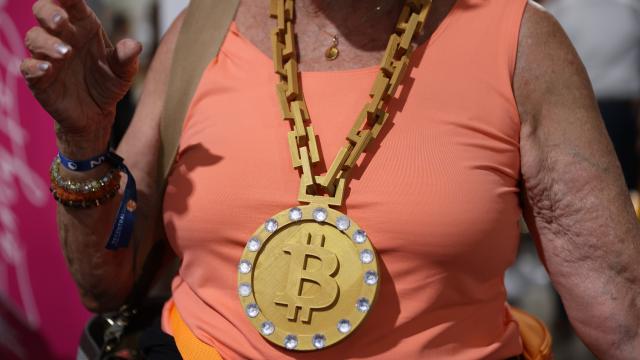As pressures mount for crypto on the world stock exchange, prosecutors and the courts aren’t too far behind looking to slap down the crypto free-for-all.
In a nine-page opinion approving of a still unannounced criminal prosecution, Washington D.C. Magistrate Judge Zia Faruqui said an unnamed defendant used an U.S. IP address to operate an online payment platform in a sanctioned country. Currently, the list of comprehensively sanctioned countries include Cuba, Iran, North Korea, Syria, and Russia. The defendant allegedly used U.S.-based accounts to do $US10 ($14) million worth in financial transactions on behalf of people in the sanctioned country, giving them back a portion of proceeds in bitcoin.
Though the exact specifics of who has been charged and the name of their platforms has not yet been released, Faruqui used the time to hammer home that crypto transactions are not the untraceable, completely anonymous decentralized financial system as some evangelists still claim. He said that feds were able to track the unnamed defendant’s money transactions, and that he didn’t even pretend to hide how he was advertising crypto as a way to get around sanctions.
The judge added that the defendant “faces liability because his transactions caused the virtual currency exchanges — perhaps unwittingly — to violate sanctions.”
In his conclusion, Faruqui issued a big fat “WRONG” for claims that crypto is untraceable and that sanctions don’t apply, linking to two classic Saturday Night Live skits of the fake political talk show The McLaughlin Group. The judge wrote “like Jason Voorhees, the myth of virtual currency’s anonymity refuses to die.”
The judge cited the Office of Foreign Asset Control’s previous determinations that sanctions apply to digital currencies as much as it does any physical money.
Faruqui apparently has a lot to say about crypto, given his background. According to his bio, Faruqui previously worked for 12 years as a prosecutor in the U.S. Attorney’s Office prosecuting terrorists’ use of cryptocurrencies alongside other darknet-based crimes. He was named as a Magistrate Judge in 2020.
U.S. law enforcement agencies, such as the Securities and Exchange Commission, have announced new efforts to go after crypto crimes. At the same time, prosecutors are going after groups trying to get around sanctions using cryptocurrencies. Earlier this year, two Europeans and one American were charged with offering advice for North Koreans to evade sanctions with the help of $US10 ($14) million in Bitcoin.
Back in April, federal prosecutors named the two euros in the alleged scheme as Alejandro Cao de Benos of Spain and Christopher Emms of the UK. The two roped in U.S. citizen Virgil Griffith, who prosecutors named a “cryptocurrency expert.” Griffith, a past research scientist for Ethereum, had previously pleaded guilty to taking a 2019 trip to North Korea for the purpose of advising the country on evading sanctions using crypto. Though the charge can carry a 20-year sentence, his plea reduced his final April sentencing down to just over five years in prison and was forced to pay a $US100,000 ($138,820) fine.
Cao de Benos and Emms are still at large, according to the U.S. prosecutors.
